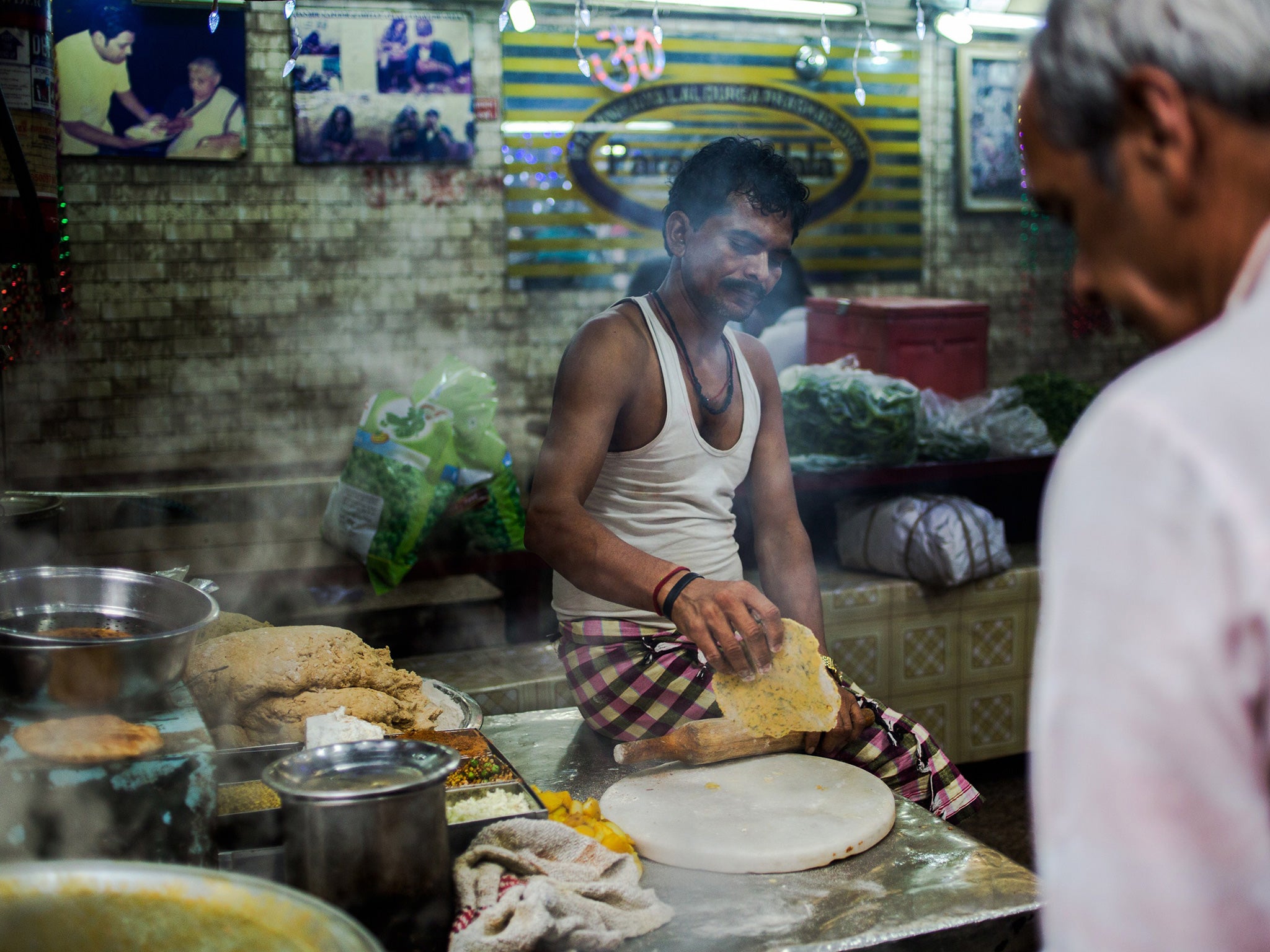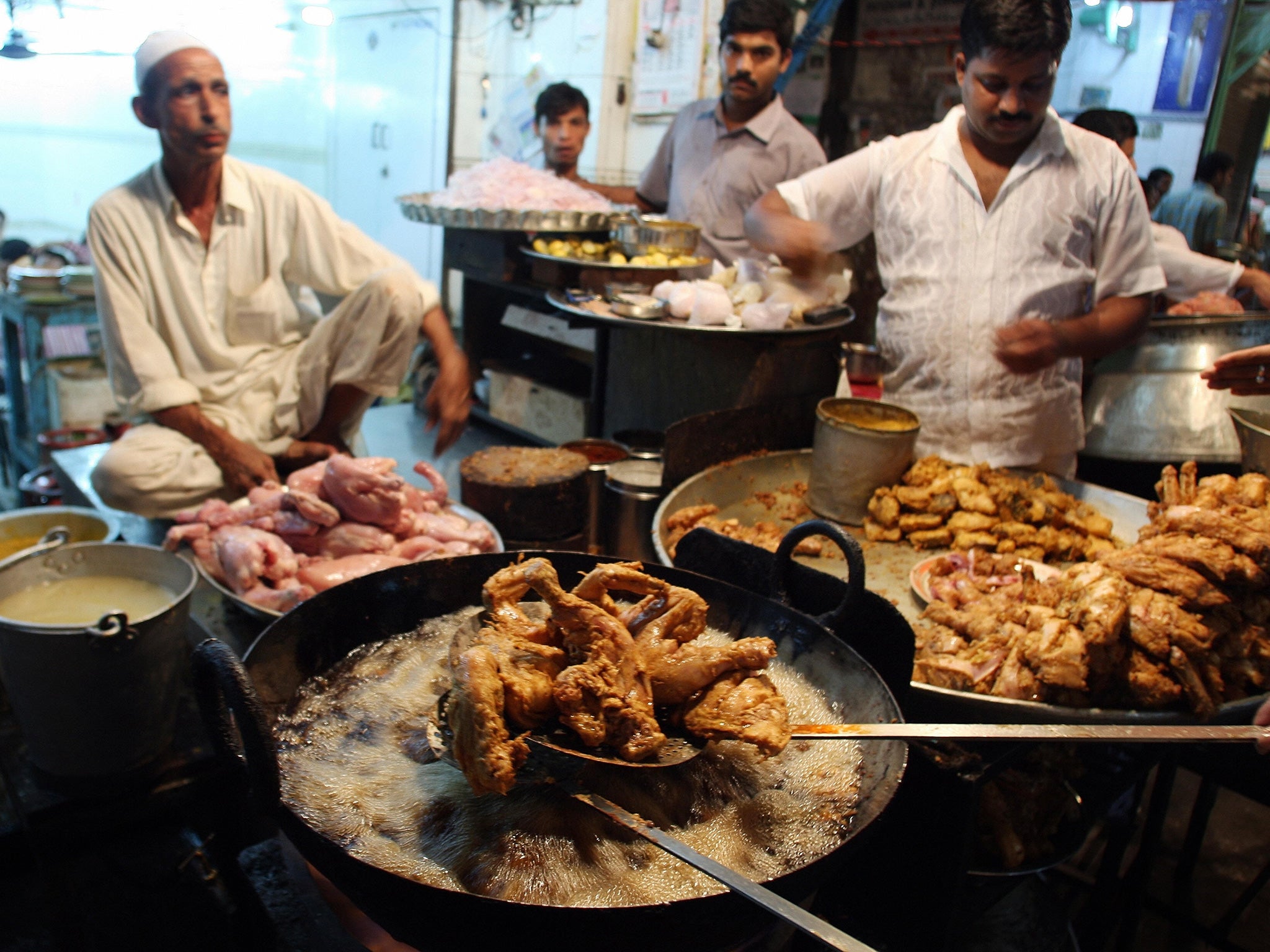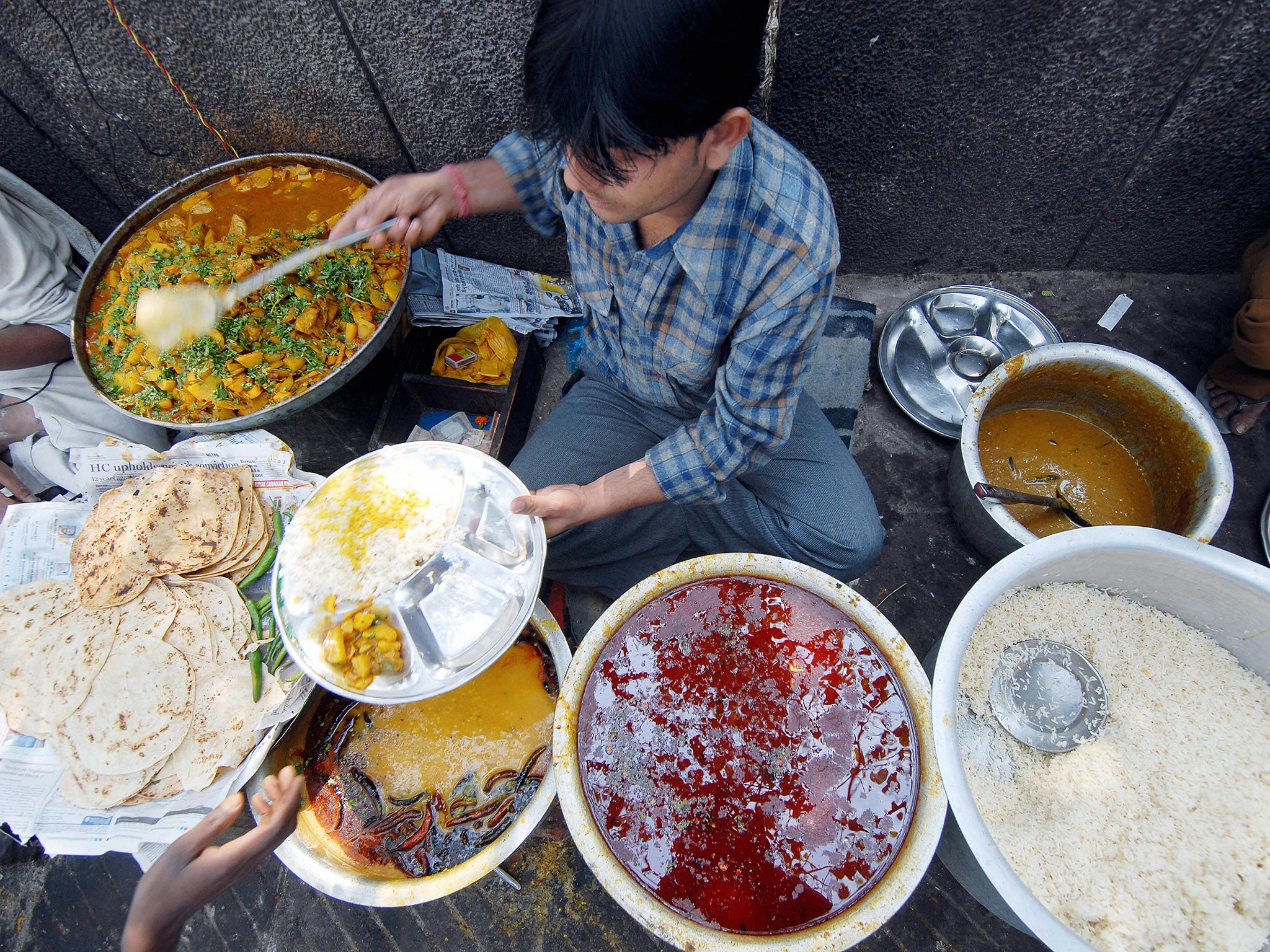Delhi's cheap food war: Street vendors fear city's canteen scheme will threaten their livelihoods
Authorities plan to open 'common man canteens' across the capital

Your support helps us to tell the story
From reproductive rights to climate change to Big Tech, The Independent is on the ground when the story is developing. Whether it's investigating the financials of Elon Musk's pro-Trump PAC or producing our latest documentary, 'The A Word', which shines a light on the American women fighting for reproductive rights, we know how important it is to parse out the facts from the messaging.
At such a critical moment in US history, we need reporters on the ground. Your donation allows us to keep sending journalists to speak to both sides of the story.
The Independent is trusted by Americans across the entire political spectrum. And unlike many other quality news outlets, we choose not to lock Americans out of our reporting and analysis with paywalls. We believe quality journalism should be available to everyone, paid for by those who can afford it.
Your support makes all the difference.They are the life blood of any Indian city, but street food sellers in Delhi say their livelihoods are being threatened by the authorities’ plans to open canteens across the capital, selling meals for as little as five rupees – or around 5p.
The so-called “common man canteens”, bearing the name of the populist Aam Aadmi Party (AAP) that rules Delhi, promise freshly cooked, nutritious meals prepared in hygienic kitchens for the city’s bulging ranks of the poor and needy.
“Whether it is a college-going youth or an office-going executive or a small trader, everyone feels the pinch of having a good meal at food stalls and restaurants,” the city’s authorities said in a statement announcing the roll-out of the canteens, the first of which is set to open within two months.
However, the thousands of hawkers serving up piping hot curries on Delhi’s bustling street corners fear the scheme will tempt away their regular customers.
For labourers, rickshaw drivers and other low wage earners on meagre daily incomes of a few hundred rupees, a cheaper lunch is sure to be attractive.

“We will not let the canteens happen,” Arbind Singh, from India’s National Association of Street Vendors told The Independet on Sunday. He claimed his members were already penalised by typically having to pay bribes to city officials and police to maintain their pitches and has demanded an urgent meeting with the Delhi authorities.
Officials say they have studied the budget “mother restaurants” in the southern state of Tamil Nadu, introduced by its popular matriarch leader, which serve up fresh local dishes for next to nothing and have been widely praised for their success.
This new scheme of the chief minister of Delhi, Arvind Kejriwal, promises to trump the smattering of stalls in the capital brought in by the previous administration that dish out daal, rice and vegetables for around 20 rupees.
“For a daily-wager, spending up to 20 rupees on a meal is not a small amount,” said Ashish Khetan, of the Delhi Dialogue Commission, which was behind the common man canteen idea.
Mr Singh believes that the proposed scheme should look to subsidise the food sold by existing vendors.
“Street food vendors already provide cheap food at convenient locations. These people are already linked to the community… The government should integrate them into their projects,” he said.
Street traders fear the new establishments will be far more widespread than the existing government stands, which number 38 in a city of 17 million people. At one of the battered yellow cabins during the lunchtime rush, diners were largely unaware of the new plans, but many were encouraged to hear that prices would be low.
“If it’s funded by a subsidy and taxpayers’ money – why not make it free?” asked Anirudh, a teacher, who, like many Indians, goes by only one name .
The common man canteens form part of a raft of pro-poor measures promised by the Kejriwal’s AAP since it returned to power in Delhi earlier this year.
Mr Kejriwal surprised the country when his newly formed party emerged victorious in the state elections in 2013, after campaigning on an anti-corruption platform.
However, the upstart former tax inspector resigned after only 49 days in office when he failed to get a key bill passed.
In state elections in February, the AAP won by a landslide, capturing 67 out of 70 seats in the Delhi assembly in a major upset for India’s ruling BJP party, led by the Prime Minister Narendra Modi.
Mr Kejriwal has since adopted a confrontational, anti-establishment stance, launching attacks on the central government and demanding extra powers for Delhi.

The proposed new canteens chime with other promises that court poor voters, such as to halve electricity bills, provide clean drinking water for all and open a thousand “common man clinics” across the capital this year.
On the streets of Delhi, at one corner stall doing brisk trade in meals for around 50 rupees, the stand’s owner, Yogesh Kumar, was defiant, confident that his offerings would continue to attract customers despite the new competition.
“My food is more oily and spicy,” he said distributing freshly baked naan and chillis to accompany the main dishes.
“And we also serve salad.”
Join our commenting forum
Join thought-provoking conversations, follow other Independent readers and see their replies
Comments